Have you ever felt frustrated by the limitations of your marketing analytics software? You’re not alone. Many marketers find themselves grappling with tools that fail to deliver actionable insights, leading to missed opportunities and uninformed decisions. In today’s fast-paced digital landscape, selecting the right marketing analytics software is crucial for understanding customer behavior, optimizing campaigns, and maximizing ROI. In fact, according to a recent survey by G2, 67% of marketers reported dissatisfaction with their current analytics tools due to issues like inaccurate data and poor integration capabilities. As a result, organizations are increasingly seeking alternatives that can provide the clarity and effectiveness they need. By the end of this article, you'll know exactly how to elevate your marketing analytics game with powerful alternatives. Let's dive into the top alternatives to marketing analytics software that can help you optimize your strategy.
Best for: Marketing professionals seeking robust multi-touch attribution.
Cometly is an advanced marketing attribution platform designed to help businesses understand the effectiveness of their marketing channels.

Cometly specializes in multi-touch attribution, allowing marketers to capture every touchpoint in the customer journey. This feature is critical for understanding how different channels contribute to conversions. With AI-powered recommendations, Cometly enables real-time optimization of campaigns based on comprehensive data analysis. This means that marketers can adjust their strategies on the fly, ensuring that they allocate resources to the most effective channels.
Key Features:
1. Multi-Touch Attribution: Understand the contribution of each channel to conversions, allowing for more informed budget allocation.
2. Real-Time Analytics: Monitor campaign performance in real-time, enabling quick adjustments to optimize results.
3. Comprehensive Tracking: Capture data from various marketing sources for a unified view of performance.
4. AI-Driven Insights: Use machine learning to generate actionable recommendations based on user behavior.
5. User-Friendly Dashboards: Visualize complex data easily, making it accessible for all team members.
Cometly's strengths lie in its ability to provide detailed insights into multi-channel performance, making it a valuable tool for marketing teams looking to enhance their data-driven decision-making processes.
Best for: Businesses needing a free, comprehensive analytics tool.
Google Analytics is a widely-used platform that provides extensive tracking and reporting capabilities for websites.
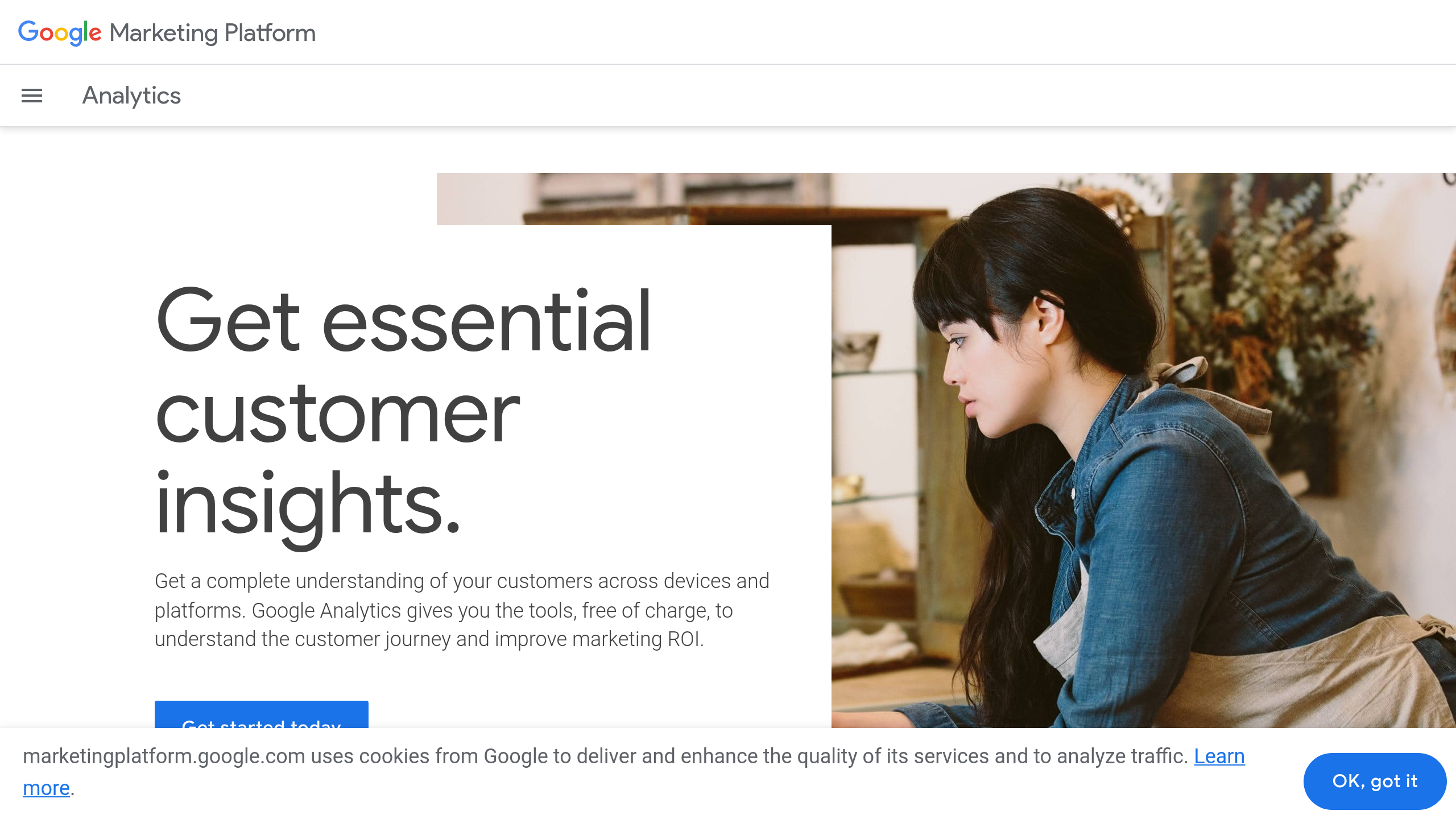
Google Analytics democratizes access to powerful analytics by providing a robust suite of features at no cost. It enables businesses to track user engagement, traffic sources, and conversion rates, making it an essential tool for any marketing strategy. The platform's customizable reporting allows users to focus on metrics that matter most to their business.
Key Features:
1. Goal Tracking: Set specific objectives and monitor progress to see how well your campaigns perform against these targets.
2. Real-Time Reporting: Get immediate insights into user activity on your website, helping you make timely decisions.
3. Audience Segmentation: Analyze different user groups to tailor your marketing efforts more effectively.
4. E-commerce Tracking: Measure sales performance and understand customer behavior in your online store. Learn more about top Google Analytics alternatives.
5. Integration Capabilities: Easily connect with other tools and platforms, enhancing your analytics capabilities. Learn more about top GA4 alternatives.
Google Analytics is particularly beneficial for startups and small businesses that need a powerful analytics tool without the financial burden of premium software.
Best for: Data visualization and in-depth analytics.
Tableau is a leading data visualization tool that helps businesses transform raw data into meaningful insights.
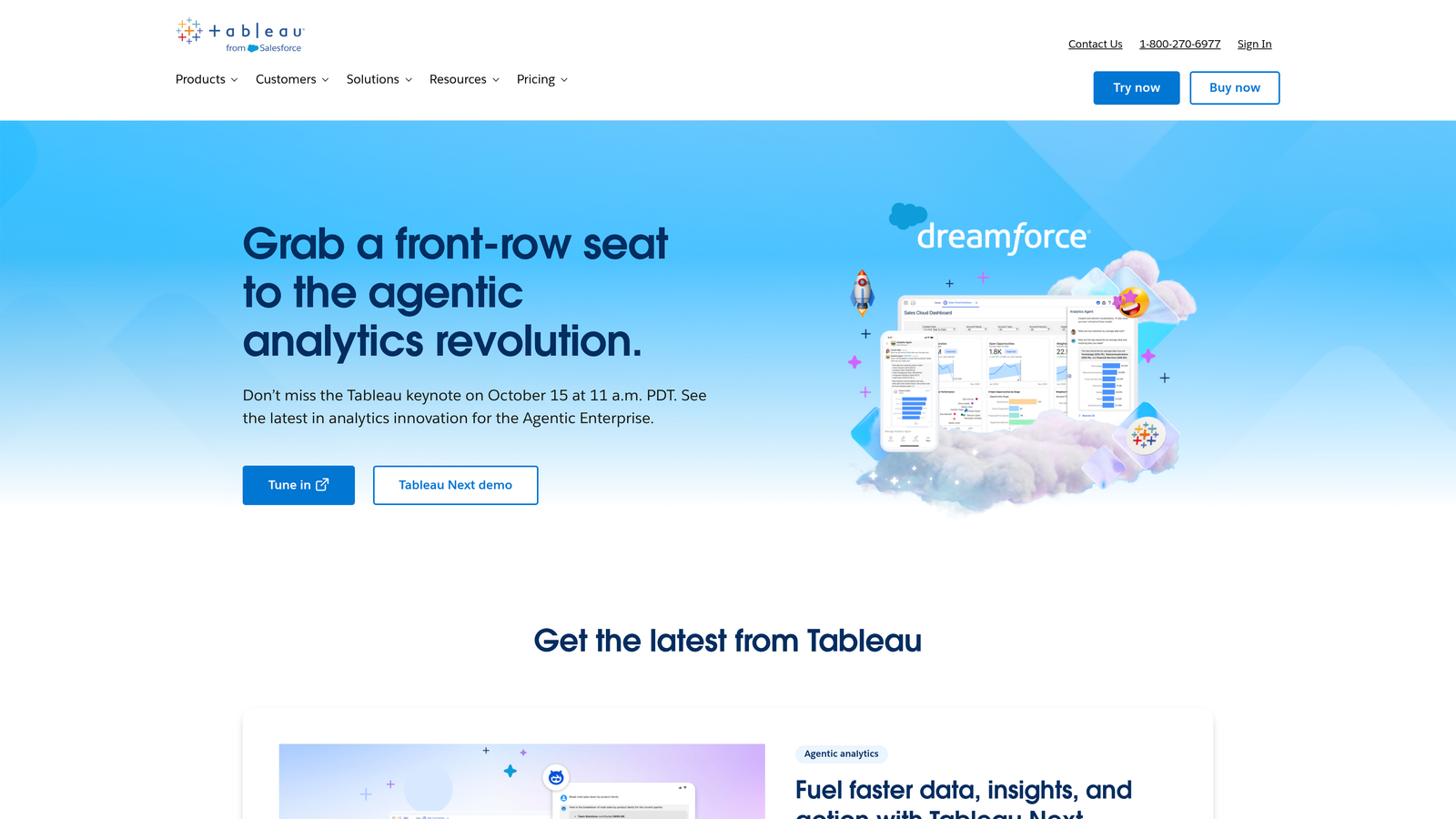
Tableau excels at creating interactive and shareable dashboards, making it easy for users to visualize complex datasets. Its advanced analytics capabilities allow users to uncover trends and patterns that might otherwise go unnoticed. This tool is particularly advantageous for organizations that rely heavily on data analysis for decision-making.
Key Features:
1. Drag-and-Drop Interface: Simplifies the process of creating visualizations without needing advanced technical skills.
2. Data Blending: Combine data from multiple sources for a comprehensive view of your metrics.
3. Collaboration Tools: Facilitate teamwork by allowing multiple users to work on projects simultaneously.
4. Real-Time Data Analysis: Access real-time insights, enabling teams to make data-driven decisions quickly.
5. Customizable Dashboards: Tailor dashboards to meet specific business needs and objectives. Learn more about top Tableau alternatives.
Tableau's robust visualization capabilities make it a valuable asset for businesses looking to enhance their analytical reporting and storytelling.
Best for: Understanding user behavior through heatmaps and feedback.
Hotjar is a powerful tool designed to help businesses gain insights into user interactions on their websites.
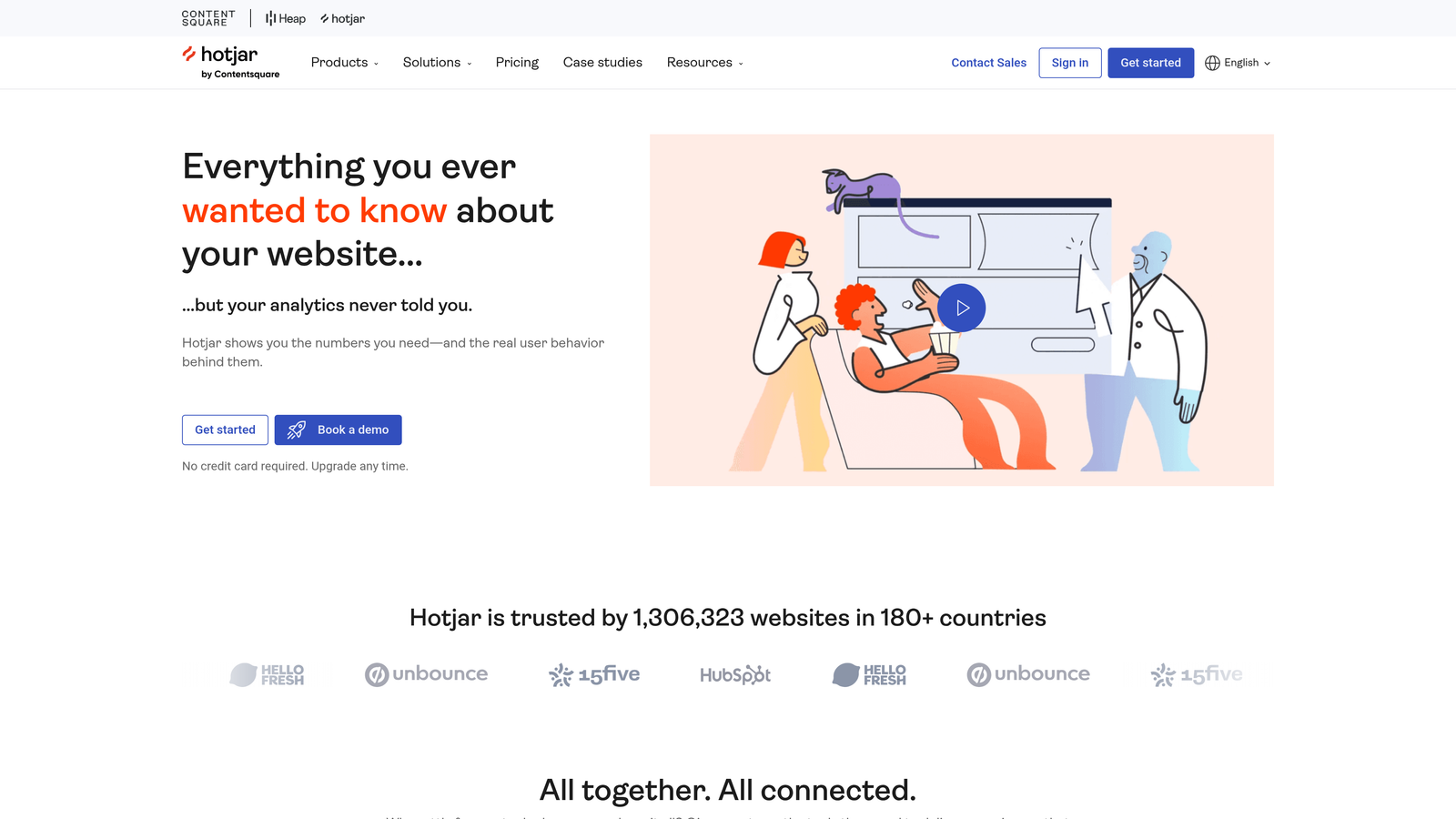
Hotjar specializes in user experience analysis, providing heatmaps, session recordings, and user feedback tools that help businesses understand how visitors interact with their sites. By visualizing user behavior, companies can identify areas for improvement in their UX design and content strategies, ultimately leading to higher conversion rates.
Key Features:
1. Heatmaps: Visualize where users click, scroll, and spend time on your website.
2. Session Recordings: Watch real user sessions to see how they navigate your site.
3. Feedback Polls: Collect user opinions directly on your website to inform design improvements.
4. Conversion Funnels: Track user journeys to identify drop-off points in the conversion process.
5. User Surveys: Gather insights on user satisfaction and areas for improvement.
Hotjar empowers businesses to enhance user experience by providing actionable insights that drive design and marketing decisions.
Best for: Product analytics focused on user engagement.
Mixpanel is a powerful analytics tool that specializes in tracking user interactions and engagement metrics.
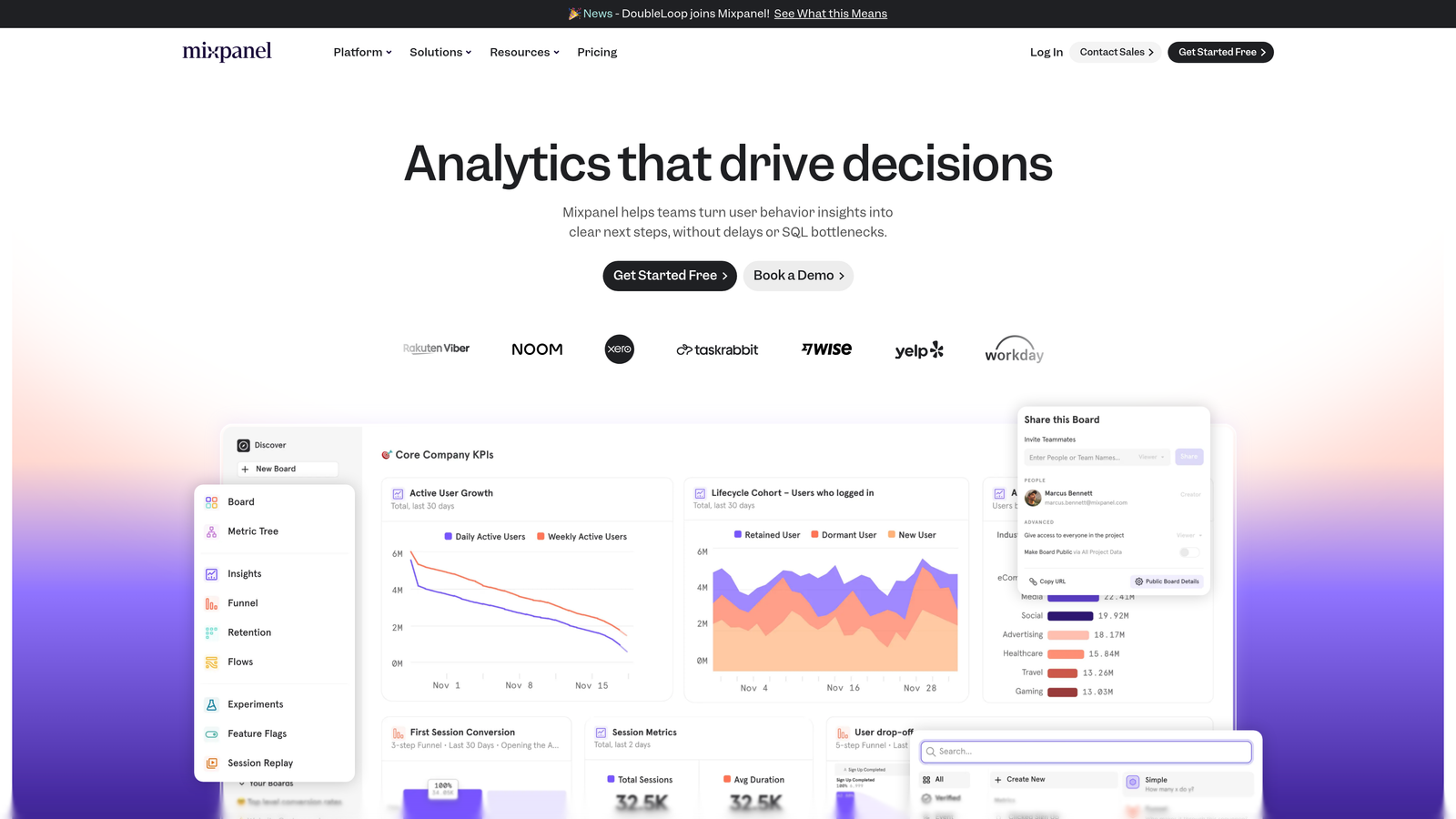
Mixpanel allows businesses to analyze user engagement over time, providing insights into how users interact with products and features. Its robust analytics capabilities enable teams to identify trends, optimize product features, and improve user retention.
Key Features:
1. Event Tracking: Monitor user actions to understand how they engage with your product.
2. Funnel Analysis: Analyze conversion rates at different stages of the user journey.
3. Retention Tracking: Measure how well your product retains users over time.
4. A/B Testing: Experiment with different features to see which performs better. Learn more about top Mixpanel alternatives.
5. Custom Dashboards: Create tailored views of your data to focus on what's important for your business.
Mixpanel is ideal for product-focused businesses looking to derive actionable insights from user engagement data.
Best for: In-depth customer analytics and tracking.
Kissmetrics provides valuable insights into customer behavior and conversion metrics.
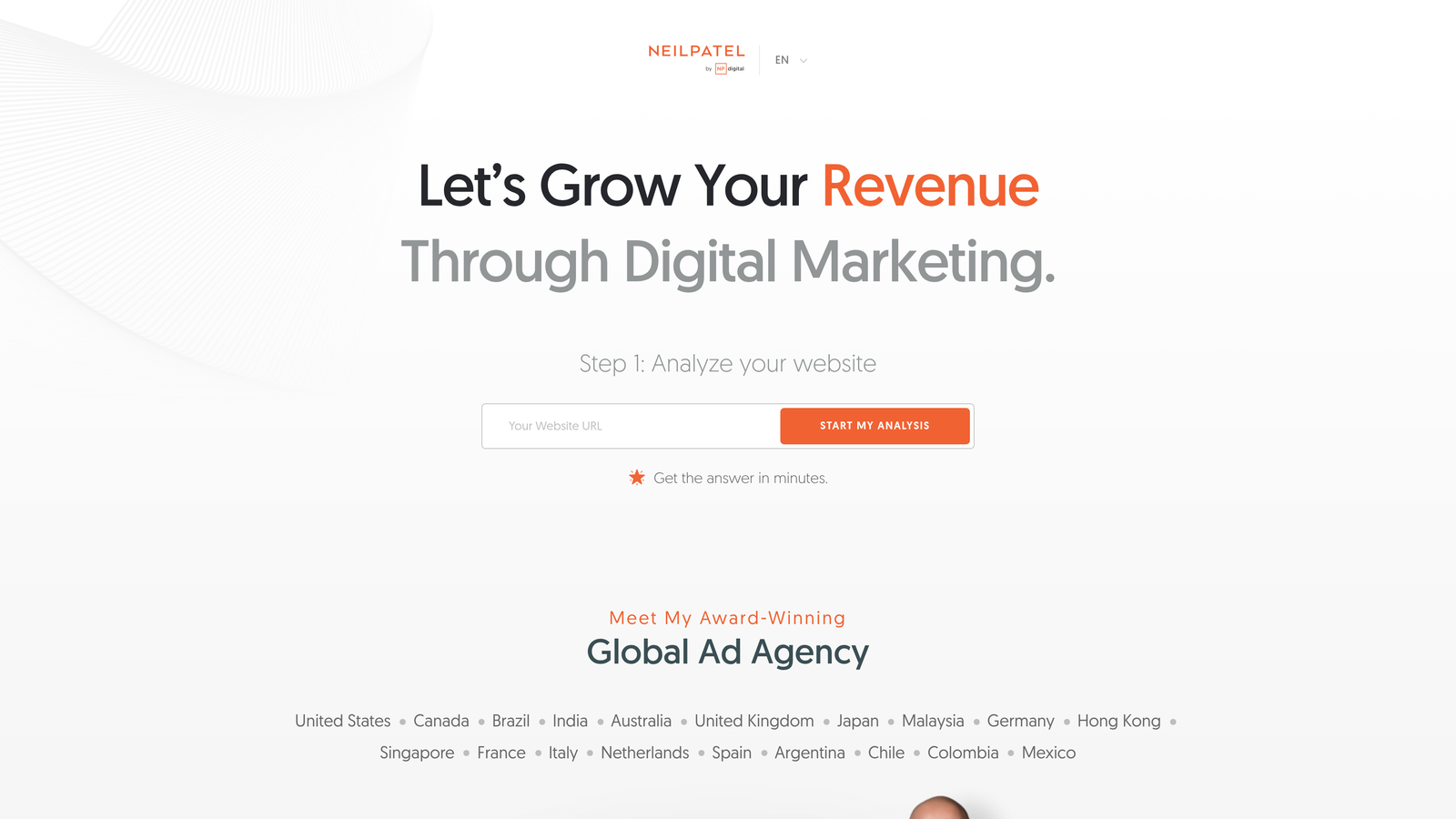
Kissmetrics focuses on tracking the customer journey across various interactions, enabling businesses to understand how to optimize their marketing strategies for better conversion rates. By analyzing customer behavior, Kissmetrics helps marketers identify drop-off points and opportunities for improvement.
Key Features:
1. Cohort Analysis: Segment users to analyze behavior over time.
2. Funnel Reports: Track the effectiveness of marketing efforts at each stage of the customer journey. Learn more about top Kissmetrics alternatives.
3. Revenue Tracking: Measure sales performance and understand the value of different customer segments.
4. Behavioral Segmentation: Tailor marketing strategies based on user behavior.
5. Custom Reports: Generate insights that align with specific business objectives.
Kissmetrics is essential for marketers aiming to maximize customer lifetime value through detailed analytics.
Best for: Comprehensive digital marketing analytics.
SEMrush is an all-in-one digital marketing tool that provides extensive insights across various channels.
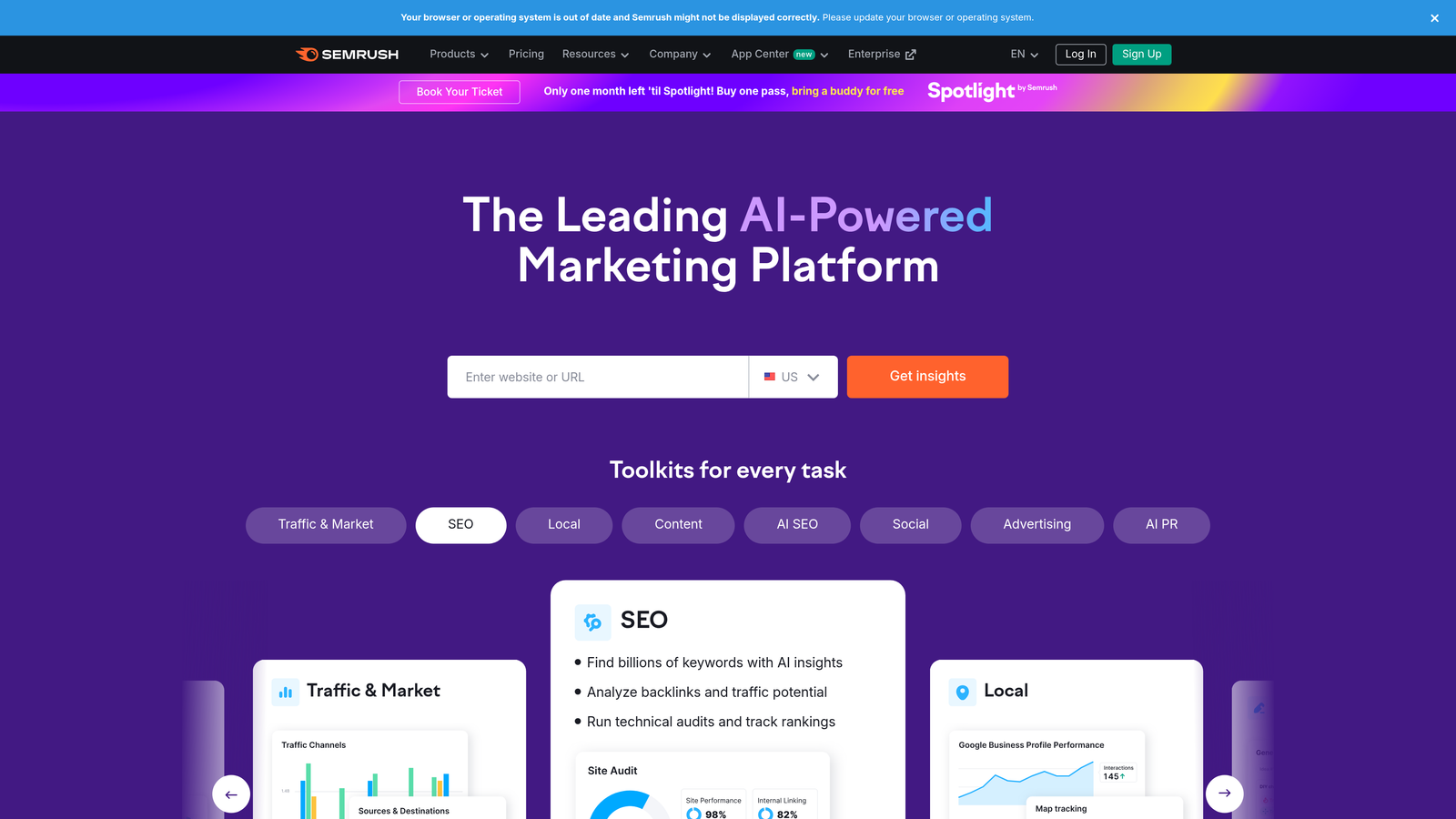
SEMrush offers a wide range of tools for SEO, PPC, and content marketing, making it an invaluable resource for digital marketers. Its comprehensive analytics capabilities help businesses track performance, optimize strategies, and identify competitive opportunities.
Key Features:
1. Keyword Tracking: Monitor keyword performance and identify opportunities for optimization.
2. Site Audit: Analyze website health and identify areas for improvement.
3. Competitive Analysis: Gain insights into competitor strategies and performance.
4. Content Optimization Tools: Enhance content performance with actionable recommendations.
5. Social Media Management: Track social media performance and engagement.
SEMrush is a powerful tool for digital marketers needing a comprehensive view of their marketing efforts and competitive landscape.
Choosing the right marketing analytics tool can significantly impact your organization's ability to make informed decisions. Each of the tools discussed offers unique strengths that cater to different business needs. Whether you’re looking for advanced multi-touch attribution with Cometly or comprehensive digital marketing insights with SEMrush, there’s a solution that can elevate your marketing efforts.
As you evaluate these alternatives, consider your specific requirements, budget, and the features that will drive the best results for your organization. By implementing the right analytics tool, you can enhance your marketing strategies and achieve better outcomes.
Ready to transform your marketing analytics? Get your free demo today and see how Cometly can help you drive data-driven marketing success!
Learn how Cometly can help you pinpoint channels driving revenue.
.svg)
Network with the top performance marketers in the industry